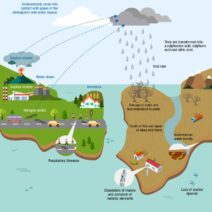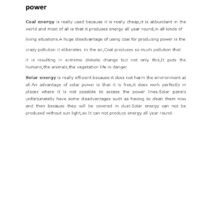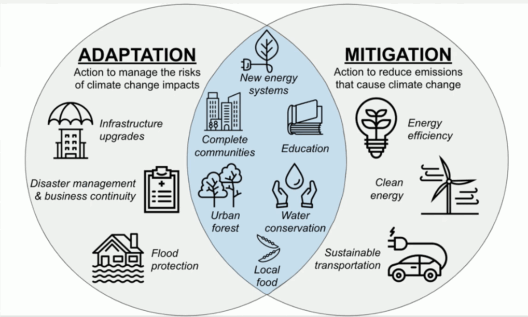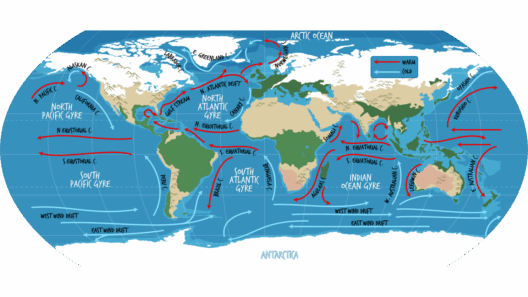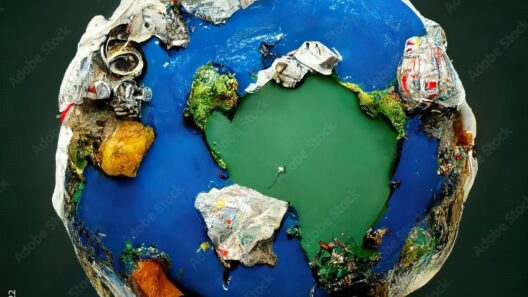In 2025, the ongoing discourse surrounding climate change remains as polarized as ever. The question of whether climate change is man-made has ignited debate across continents, affecting policy decisions, public opinion, and scientific inquiry. A multitude of studies, assessments, and reports converge to illuminate one undeniable conclusion: human activity is a principal driver of climate change. This article meticulously dissects the current scientific consensus surrounding anthropogenic climate change, providing a nuanced understanding of its implications and calling for an urgent reevaluation of our collective responsibility.
To grasp the intricacies of climate change, one must first elucidate the fundamental principles behind this global phenomenon. Climate change refers to significant alterations in temperature, precipitation, and other atmospheric conditions over extended periods. While climate naturally fluctuates due to various factors, including volcanic eruptions and solar radiation variations, the magnitude and rate of contemporary changes are unprecedented and correlate strikingly with industrialization and fossil fuel consumption since the late 19th century.
The Intergovernmental Panel on Climate Change (IPCC), a leading international body established to assess climate science, has synthesized a wealth of research, leading to a critical finding: over 95% of climate scientists agree that recent warming trends are primarily attributable to human activities. This figure underscores a remarkable consensus that should dispel any lingering doubts about the anthropogenic roots of climate change.
Central to this discussion is the concept of greenhouse gases (GHGs), which include carbon dioxide (CO2), methane (CH4), and nitrous oxide (N2O). These gases trap heat in the Earth’s atmosphere, creating a ‘greenhouse effect’ that is vital for sustaining life. However, human activities, such as burning fossil fuels, deforestation, and industrial processes, have markedly intensified this natural phenomenon, leading to an unprecedented increase in atmospheric GHG concentrations. According to the latest reports, CO2 levels have reached over 410 parts per million, a threshold not seen in at least 800,000 years.
Contrary to the perspective that natural events solely account for climate shifts, a plethora of scientific modeling demonstrates that the current trajectory of temperature rise cannot be attributed to natural factors alone. Research utilizing climate models elucidates that when simulating the climate with only natural influences, such as volcanic activity and solar variations, the models fail to replicate the temperature increases observed in the real world. In stark contrast, simulations that incorporate human-induced factors align closely with the observed data, reinforcing the assertion that human actions are the main drivers of today’s climate crisis.
Yet, acknowledging the man-made origins of climate change goes beyond mere recognition; it necessitates a profound exploration of the socio-economic frameworks underpinning these activities. Global economic systems have long prioritized growth and resource extraction, often at the expense of environmental integrity. This paradigm has inadvertently woven a complex tapestry of dependency on fossil fuels, with nations scrambling to harness energy resources to fuel their development. Such practices, while ostensibly beneficial in the short term, exacerbate the long-term impacts of climate change, revealing a tragic irony: the very actions intended to ensure prosperity are fundamentally undermining the planet’s viability.
Moreover, this discourse is not merely academic. The repercussions of climate change manifest vividly throughout the globe. Increasing temperatures contribute to more ferocious weather events, including hurricanes, droughts, and floods. These phenomena not only pose immediate threats to human lives but also catalyze long-term socio-economic instability. Nations with fewer resources are disproportionately affected, revealing glaring inequities in our global response to climate challenges. The interplay of social justice and environmental stewardship is becoming increasingly evident, urging us to champion a unified approach that addresses these intertwined issues.
In recent years, there has been a burgeoning movement among policymakers, activists, and scientists advocating for comprehensive strategies to mitigate climate change. Such initiatives include transitioning to renewable energy sources, enhancing energy efficiency, and promoting sustainable agricultural practices. Encouragingly, advancements in technology have paved the way for alternative energy solutions, such as solar, wind, and geothermal, that promise not only to lessen our carbon footprints but also to create sustainable jobs in an evolving economic landscape.
Simultaneously, public awareness and engagement in the climate conversation have surged. The influence of grassroots movements advocating for climate action, epitomized by phenomena the likes of Fridays for Future and Extinction Rebellion, is undeniable. These sociocultural shifts present a pivotal opportunity to redefine societal norms, challenging outdated paradigms and urging collective responsibility. The youth, empowered and informed, are demanding that policymakers respond with urgency and integrity. This generational dialogue is shifting the dynamics of climate discourse and heralding promises of proactive engagement.
Nevertheless, the path ahead is fraught with challenges. Misinformation and climate denialism persist as formidable barriers to action. The proliferation of unfounded claims undermines public trust in scientific findings, necessitating a concerted effort to disseminate accurate information widely. Educators, communicators, and scientists must collaborate to ensure that the discourse surrounding climate change is devoid of distortion and remains anchored in verifiable reality.
In conclusion, the verdict is clear: climate change is predominantly man-made. The scientific evidence is irrefutable, and the urgency for action is palpable. As individuals and as a global community, it is imperative to confront this existential crisis, undertaking meaningful actions that transcend mere acknowledgment. The future rests on our capacity to cultivate empathy toward the environment, advocate for equitable solutions, and engage in transformative practices that ensure the health of our planet for generations to come. The time for decisive action is now; the very fabric of our existence hangs in the balance. Let us embrace this challenge and reforge our relationship with the Earth as stewards—aware, attentive, and action-oriented.
